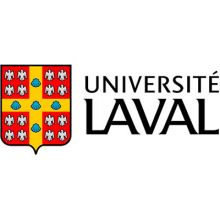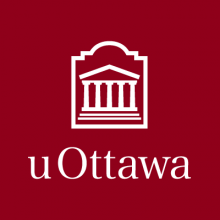Canada’s Laval University has suspended two faculty over their public questioning of Covid vaccinations for children, in a spreading series of political battles over academic speech that appear to be migrating from the US.
Patrick Provost, a professor of microbiology, infectious diseases and immunology, and Nicolas Derome, a professor of molecular biology, were described by their supporters as receiving two-month suspensions without pay for speaking at a conference of anti-vaccine activists.
Laval said that it respects academic freedom but explained that “this freedom exists within other obligations, laws, policies and collective agreements, namely the responsible conduct of research policy”.
The activist group that hosted the professors, Réinfo Covid Québec, said Laval also ordered Professor Provost – under the threat of dismissal – to ask the group to remove from its website a video of his presentation.
Réinfo Covid Québec said it declined the university’s request, claiming that the professors had described for its audiences reasonable concerns over the net benefit to children of Covid vaccinations, and suggesting that the university was being influenced by its financial ties to pharmaceutical companies involved in vaccine manufacturing.
The professors also were backed by the Canadian Association of University Teachers (CAUT), the nation’s leading faculty association, which warned that Canada might be slipping into the quagmire of partisan interference and hypocritical free speech controversies seen in parts of the US.
Canada does have strong legal protections for academic freedom, said CAUT’s executive director, David Robinson. “So I think we’re on relatively safe ground,” Mr Robinson said. But he added, “we live next door to the elephant, so whenever it moves, we feel the earth shake”.
The Laval case is among several free speech showdowns around the country in the past year that have antagonised both sides of the political spectrum.
One at the University of Saskatchewan also involved the propriety of Covid-related medical advice. The faculty member, Francis Christian, was suspended from his post as professor of surgery and was removed from a leadership role at the Saskatchewan Health Authority after he publicly questioned the severity of the pandemic and the safety of vaccines.
Two other prominent cases involved racial matters. Verushka Lieutenant-Duval, a part-time professor of visual arts, was suspended by the University of Ottawa after she used the N-word during class; and Frances Widdowson, an associate professor of policy studies, was fired by Mount Royal University after she criticised the Black Lives Matter movement and suggested that there had been educational benefits from the nation’s network of abusive residential schools where 150,000 Indigenous children had been confined during the 20th century and where thousands died.
CAUT defends them all, despite the range of political alignments they suggest, saying faculty should be protected in their free speech rights unless they violate the law or demonstrate egregious professional incompetence.
That is true even in cases such as those at Laval and Saskatchewan – where the professors were speaking outside their fields of specialisation to publicly contradict established medical advice on a deadly pandemic – as long as they were not being intentionally dishonest, Mr Robinson said.
Without that kind of basic protection, academic champions of social justice such as Bertrand Russell and Lee Lorch had been kicked out of their jobs, and many others, such as Noam Chomsky, might have been, Mr Robinson said.
The Laval case came shortly after the premier of Quebec, François Legault, of the conservative and nationalist Coalition Avenir Québec party, pushed through legislation that allows academics to utter any word in an educational context. Mr Legault made clear that he was reacting to the case of Dr Lieutenant-Duval – who later apologised for her speech and was reinstated by Ottawa – even though Mr Legault’s other actions include a ban on teachers and other government employees wearing religious symbols at work.
“It’s part of a hypocritical approach to academic freedom,” Mr Robinson said, “much like Republicans in the United States who are challenging ‘woke’ culture, and claiming there’s censorship on campus, at the same time as they’re trying to dictate what can be taught in the classroom.”
The potentially bigger threat to academic freedom across Canada, he said, was taking the form of Pierre Poilievre, the leading candidate to head the Conservative Party of Canada. Mr Poilievre has promised legislation that would cut funding to any university deemed to be stifling free speech, although Mr Robinson warned that his definition was not clear. Most likely, the CAUT leader said, “what he means by ‘free speech’ is ‘conservative speech’”.
Register to continue
Why register?
- Registration is free and only takes a moment
- Once registered, you can read 3 articles a month
- Sign up for our newsletter
Subscribe
Or subscribe for unlimited access to:
- Unlimited access to news, views, insights & reviews
- Digital editions
- Digital access to THE’s university and college rankings analysis
Already registered or a current subscriber? Login











